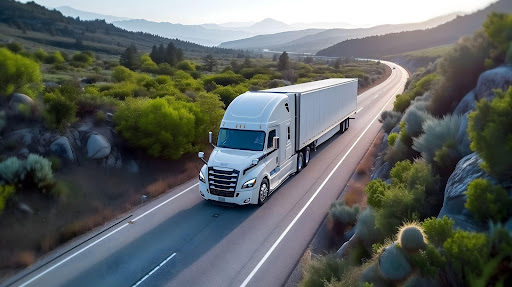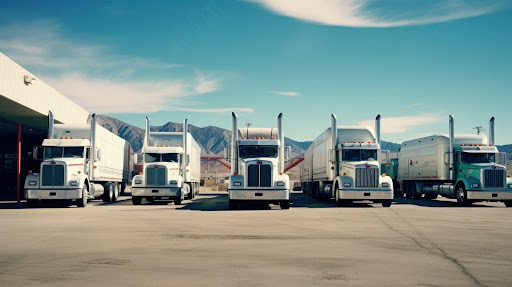
Starting your transport business may feel like stepping onto a busy highway in today’s fast-moving freight and logistics industry. Many entrepreneurs in the USA enter this sector, which is driven by the rise in global shipping, e-commerce, and a demand for faster deliveries.
With the growing opportunities in this industry, the challenges are also high. Be it a financial issue or a complex insurance for commercial trucking, one wrong step can affect the entire journey.
So, if you’re planning to startup a transport company, understanding a few things early can make the difference.
In this blog, we will discuss the essential things to know from day one to improve the scale of your logistics operations.
Why Are Freight & Logistics Startups Essential For Modern Commerce?

In a world where instant deliveries and global shipments have become the new normal, freight and logistics have become the backbone of the modern commerce industry. Manufacturers, online sellers, and customers who expect same-day delivery depend heavily on a reliable logistics network.
As per a study, the logistics market in the United States is expected to reach $671.2 billion by 2030, growing at a CAGR of 6.7%. This growth shows the massive opportunity for emerging businesses ready to evolve with the industry.
Moreover, startup businesses in logistics offer a streamlined pattern to:
- Address customer needs faster
- Leverage better tracking technologies
- Provides personalized services that other companies overlook
From offering eco-friendly shipping options to providing live tracking, startup transport companies are redefining the movement of goods locally and globally.
What Are the Hidden Roadblocks for Startups in this Industry?
The freight and logistics sector has huge scaling potential, but newcomers often face hurdles that don’t appear in initial planning.
Here are some challenges that you may face in this journey:
- Cash Flow Constraints
A new transport business requires heavy initial investments, including trucks, licensing, fuel, and payroll. If not done properly, gaps in cash flow can delay growth.
- Unstable Supplier Relationships
Startups often depend on outside brokers, carriers, or warehouse partners. Inconsistency in these services can lead to last-minute price changes that can cause delays in delivery timelines. - Technology Gaps
Many business owners skip tech investments to save on upfront costs. However, if their technologies are outdated, there will be a lack of systems for tracking, fleet management, or automated dispatching.
How Can Logistics Startups Set Up Efficient Operations?
For a new US truck transport company, laying the foundation for smart operations early can help them grow their business. It also increases the margins, freeing teams to focus on what they do best.
Here’s how to do it correctly, right from day one:
- Invest in scalable tech
Investing early in automation tools like route optimization and electronic documentation will simplify operations and lower manual costs. - Pick strategic locations
A warehouse close to high-demand locations can reduce fuel expenses and delivery times.
- Build strong carrier networks
A strong relationship with a reliable network of vendors can keep the operations running efficiently. - Set clear SOPs
Standard operating procedures help reduce confusion, speed up onboarding, and ensure every task is done correctly. - Enable real-time tracking
Customers prefer tracking their shipments in real time. Immediate visibility builds trust and permits related issues to be solved before they become severe. - Train staff for efficiency
Highly trained drivers, dispatchers, and admin teams are the path to fewer errors and faster turnaround time.
What Risk Management Steps Should Freight Startups Take First?
Risk is part of the game when you’re in the transport business, whether handling damaged cargo, road crashes, or lawsuits. Neglecting risk management can be a costly mistake for new freight business owners.
Here are some steps to consider right when you step into the business:
- Secure commercial auto insurance
Proper insurance coverage protects vehicles from unexpected happenings on the road, including fires, accidents, breakdowns, engine failure, theft, etc. These can slow down your delivery deadlines.
- Attractive industry for malicious people
The trucking industry is often targeted by dishonest individuals who stage accidents or fake claims just to take advantage of insurance policies and get quick money. That’s why having the right coverage and a trustworthy insurance team is key to protecting your business.
- Cover cargo liabilities
If your shipment gets misplaced, it can lead to compensation claims. On the other hand, having cargo insurance ensures financial security and the client’s trust. - Protect against third-party claims
Third-party liability insurance protects you from vandalism costs if your vehicle causes damage to someone unexpectedly. - Set up workers’ compensation
It ensures that employees are covered in case of on-the-job injuries, which boosts their morale. - Build a risk response plan
A clear action plan becomes crucial to reduce panic during emergencies, like breakdowns. - Update insurance policies regularly
Updating your insurance for commercial trucking ensures you stay secure at every stage.
Final Thoughts
Success in the freight and logistics industry is about moving smart from the beginning. By addressing early challenges, building efficient systems, and prioritizing risk protection, startups can lay a strong foundation for long-term growth.
So, if you’re looking for an expert who can guide you through risk protection through commercial trucking insurance, consider Preventty USA Specialty Insurance, which makes the process effortless and transparent.
They offer a wide variety of tailored solutions, and their years of experience will surely help new businesses confidently navigate complex needs.











